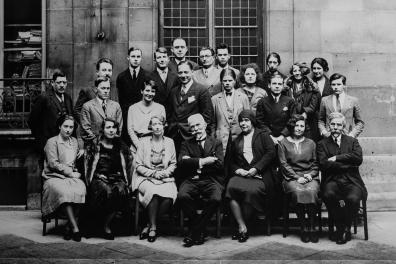Conference "Faire l'histoire des Langues O' - Enjeux et méthodes", September 26

Tuesday, September 26, 2023 from 6pm to 8pm
Maison de la recherche - Auditorium Dumézil
2, rue de Lille - Paris 7ème
Recommended registration via this form.
Free admission subject to availability.
Round-table discussion moderated by Emmanuel Lozerand, chargé de mission Histoire de l'Inalco, as part of the cycle 1873: a turning point in the history of Languages O'.
With:
- Marie Bossaert, lecturer in the history of Orientalism at the Université Clermont Auvergne
- Clément Fabre, ATER at the Université Paris 1 Panthéon-Sorbonne, specialist in Sino-Western relations
- Anna Pondopoulo, lecturer in Peul history at Inalco
- Emmanuel Szurek, lecturer in Turkish studies at EHESS
The history of Langues O' has yet to be written. Admittedly, on the occasion of the centenary or bicentenary, works have appeared that inform us about the major stages in the history of the establishment: premises and statutes, for example, and we often know rather well the biographies of the tenured staff, the great Orientalist scholars.
But we lack a global history that would insert the small history of Langues O' into the major developments of the nineteenth and twentieth centuries.
We need to place our intellectual history in the context of the development of the humanities and social sciences, to examine the role of "local informants", and in particular "native repetiteurs", in the development of our knowledge, and to integrate our administrative and political history with that of higher education and its reforms, think about our diplomatic history in relation to France's history with the world, through colonization and decolonization, elaborate our social history by taking an interest in those who were our students, reflect on our cultural history, on the image of our establishment in French society. We need to take stock of our sources, and question our methods and the issues at stake. We invite you to share in this nascent undertaking with researchers who have begun to explore these issues.
Contact: View e-mail